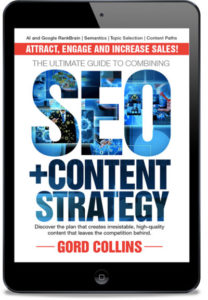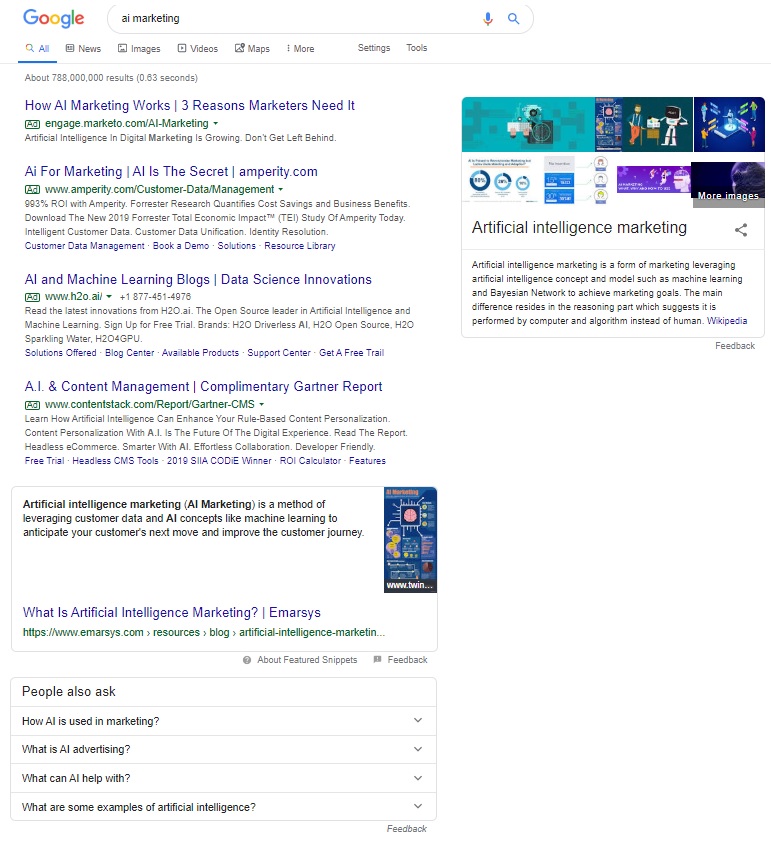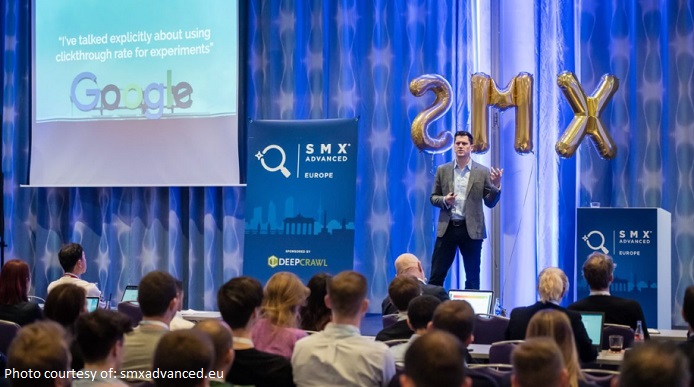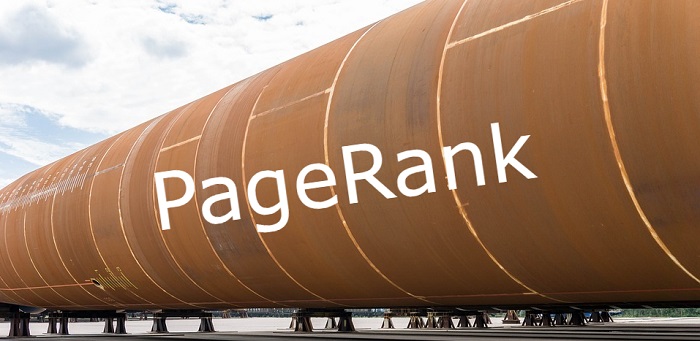The Best Keywords Are Worth It
Keywords are the holy grail for consumers and search engine optimizers. Consumers need the right keywords to find what they’re looking for.

Sometimes they’re not educated about how to use keywords more wisely to get the best search results. Similarly marketers don’t understand how to choose and lay out keyword paths for Google to find. They might try to jam the keywords in Googlebot’s face so to speak and expect top rankings.
Search engines too have been hyper-focused on keywords, but they’ve run into some issues. SEOs were taking advantage of how simple and obvious Google was. Google knows they need to stay one step ahead of SEO experts who know how to get sites ranked unreasonably high.
Google’s AI driven algorithm is becoming very complex. Some marketers are giving up on SEO and content strategy. A few think AI software will solve the Google challenge.
It Will Always be About Keywords

Today with new AI enhancements to their indexing system, Google’s indexing team is trying to perfect the role of keywords in search. Google is still about keywords, perhaps a longer string of keywords, via an algorithm they won’t reveal to us.
They’re reinterpreting the meaning or intent of keywords being used. And they’re trying to limit the efforts of SEO people. You have to run through the AI-processed gauntlet of filters and penalties to capture top rankings.
That’s what is driving the changes in search engine optimization techniques now — responding to all of these recent AI algorithm updates. Their AI unit called RankBrain is in on all searches, constantly trying to determine the exact purpose of users searches. Keywords are being looked at differently.
Subscriptions with the major SEO platform solutions can help find great keywords and understand how Google views them.
Flushing the Best Keywords Out in the Open
Despite Google’s changes, and attempts to obfuscate their keyword processing system, finding the best performing keywords is a vital task for a marketer. Those ideal, profit producing words and phrases aren’t easy to discover. Many times, it takes months or years to flush them out of the keyword wilderness and rank at the top.

We’ll discuss a process to help you uncover the good ones faster so you can re-organize your keyword, content strategy and outreach for backlinks strategy to give Google the right signals about your content’s topical meaning.
And I have to say that the new AI SEO Software might help in this regard, either now or in the near future. We all know the software will be doing the hard testing and filtering of the best keywords, but we have to know what the software is doing — we guide the AI software.
Keywords Front and Center
When Google was formed 22 years ago, consumers were hungry for information. Yahoo, Google and other search engines made it possible to type in some keywords and get a wealth of information, products and companies delivered to them. To Google, the Internet was just a vast pool of text documents containing keywords.
The whole of Internet business was being created and delivered via keywords. It still is today, despite the rise of social media. Even the bots use keywords to organize social media feeds.
Keyword phrases are a focal point for online business. Whether it’s your brand name, product, service, sector, and benefits, keywords symbolize solutions to your customers and prospects. If you aren’t ranking for those keyword phrases, Google considers you not relevant for them, and then you aren’t where you need to be.
It’s location, location, location and keyword positioning represent a virtual place you must be. But which phrases and single core keywords should you, or could you rank highly for?
How Important are the Right Keywords
Millions and millions of websites are being optimized for less than the best keywords. This results in less traffic, poorer quality prospects, lower brand loyalty, lower content engagement, lower content sharing and backlink acquisition, and profit.
For many small businesses, a small set of keywords will drive most of that businesses success. You see it in the analytics reports all the time. Many of these companies find their rankings disappearing because they were optimized in old ways that don’t work anymore. They need to modernize.
The reason for this phenomena is that the content SEO strategy is focusing on those keyword phrases, those keywords have enough volume in searches, and because of consumers limited vocabulary — they’re the only keywords they know to use (e.g., Artificial Intelligence marketing).
What makes keyword selection so tricky and difficult now is in how Google is reinterpreting and refining what keyword phrases mean to each individual searcher. That’s what big data and AI have helped them do. Each searcher is an individual with their own personal vocabulary.
But let’s not get discouraged. A Good AI SEO expert knows how to re-envision and see what Google sees. That’s what the best AI SEO software is supposed to do — give us amazing insight. Let’s lead Google down our path.
Google Analytics and Webmaster Console Data
Some analytics solutions help you use Google’s SEO tools to learn more about which keywords produced profitable sales. However, Google’s disabled the keyword data presented in the analytics dashboard so it doesn’t really help.
You have to map your pages to the keywords each one ranks for. But still, you’re not quite sure out of the hundred or so keywords which that page gets traffic through, are the very best keywords.
You do know from your analytics reports that certain high volume keywords are producing your traffic and therefore your sales. But when you want to narrow it down precisely, it’s difficult to determine.
This is where the Adwords keyword tool and advertising platform come in handy. To focus in on your best keyword phrases, you can run ads for all your individual specific targeted keyword phrases. Then you can determine precisely which phrases are delivering sales. An well planned Adwords campaign is valuable.
But organic SEO is not the same as pay per click ad campaigns. The keywords you want on organic rankings might be too competitive for your site to rank well. And Google may not interpret your content meaning the way you do. They might have you ranking for other nearby, related keyword phrases.
In comes the creative part of SEO. You must manage your site’s keyword meaning as well as your keyword reputation coming via backlinks from other websites, especially high authority sites. You design the content pathways and link pathways Googlebot spiders. You get to shape that robot experience.
Keyword Tools: Adwords Keyword Planner
To help us flush out the best keywords we can buy subscriptions to services such as ahrefs, MOZ, SemRush, Wordstream, or find them in the Google Webmaster Console. The webmaster console isn’t especially helpful until you’re actually ranking in the top 100 for those phrases.
To get a clearer picture of the keyword landscape, lets just use Google’s keyword planner. Later on, if you have the funds, you could hire a programmer to develop a script that will help you map your search engine referrals to the end profit they created. That’s a custom programming thing.
Your particular target keywords of course are unique to your industry, location, niche, and competitiveness. Your budget and the SEO/Expertise you have will dictate what ‘best keywords” you can actually pursue. Here’s an example for a San Diego real estate agent as an example.

In the above graphic, you can see the keyword volumes associated with real estate in San Diego. A San Diego Realtor will want to know which keywords he or she should be focusing on for their real estate lead strategy.
It’s important not to be fooled by the keyword lists. Google reports no searches for Realtor in Oceanside, but when a person does type that phrase in, they’re likely looking to sell their house. That’s a great phrase to rank number one on.
There’s a difference between quality and quantity which your analytics tools should help you figure out. “real estate in San Diego” is a great phrase to rank for with higher volume, however it’s generally used by home buyers or sellers in the early phase of their decision cycle. You’ll need good content to capture their interest and nurture them along.
High volume phrases are competitive and you have to be good to rank for them. They are good for building awareness and keeping in front of home buyers and sellers throughout the year. Branding is important.
Of course, Realtors are more interested in sellers, the holy grail of real estate sales. Sellers have a different vocabulary and will be more interested in home prices and comps in their neighborhood. But hold on, even home sellers have to find another place to live. Sellers are usually buyers too.
For you, the best keyword choices right now depend on which you can compete for, which you can generate really good content that Google respects, and which might create a real customer. That requires some experimentation. Can AI SEO or AI content software help? Perhaps, but the price of those solutions may be too high.
Lead Tracking Tools
To aid in your keyword tracking efforts, you’ll need a good lead tracking tool. That tool will help you discover the landing page that created the prospect/sale, so you can apply a lead score, and a final profit/sales value. Then you can begin to match up which keywords likely produced them via the Google webmaster console.
Lead tracking software tools to look at are: Hubspot, Pipedrive, Infer, Everstring, Salesforce Engage, Marketo, Saleup, Zoho, and Freshworks. At some point, you’ll be interested in predictive lead scoring offered in AI marketing solutions.
Google Analytics Isn’t Much of a Help
Google doesn’t show the keywords in the Analytics dashboard. They want to keep us from that keyword insight, and encourage us to use Google Ads (Adwords) to grow their profit.
When you’ve discovered the keywords that are likely producing your profit, you have to begin building/improving your content so you can rank higher on them.
And of course that’s where expert SEO comes in. Given how Google is using AI to re-interpret keyword meanings and intent, and re-interpreting your content’s meaning on a monthly basis, you’ll have to work hard to keep up.
That job is difficult and is now solely the field of SEO experts. When machine learning and AI testing came into Google’s search engine, it has become very difficult to understand what they’re doing.
What you’ll likely be doing in 2020, is hiring a content expert who lives and breathes SEO. You need someone with both skills, because you must fashion your content to convey the subtle and key things Google is looking for.
Building Deeper Insight
Google is looking deeper into your content, it’s keywords, phrases, sentences, paragraphs, headings to determine its precise meaning. They’re taking the vagueness out of meanings.
Some experts, including Google’s own technical crew say you can’t do SEO anymore. Google customizes rankings for each individual searcher and looks beyond simple, keyword clues contained in website content.
They’re wrong of course. SEO continues to be very important. While others struggle in this vicious pursuit of good rankings and visibility, those who master the new indexing paradigm could corral an even bigger chunk of consumer traffic.

Google is Reducing Your Clickthroughs
Keep in mind Google is grabbing up more searchers and clicks for themselves. Direct clicks to businesses from Google are heading downward. Since consumers only click a small amount of ads, the rest click on something else, and yet if they click on one Google’s special features, they’ll still eventually come back to finding your site at some point. All Google can do is distract and delay them, causing them to click more.
Inevitably, they’re looking for your company and your products and services. Keep the faith that all paths online point somehow to your business.
Being keyword relevant means being relevant to customers too. Your content should “ring true to that keyword tune” so they get that laser clear message about the important value you offer.
The worst thing you can do, is not create keyword and topically optimized content for your customers. That keeps branding sharp and keeps your company top of mind.
Designing Your Content Without Keywords?
See this other post for brilliant content strategy that marries up with good SEO. By the way, Google’s lead technician says Google doesn’t do latent semantic indexing (LSI), yet a lot of SEO gurus are saying they do.
It’s just semantics. Google’s looking beyond plain keywords for other cues to content meaning. They resort to related words, which leaves them open to search engine optimization techniques. At some point, if not now, they will have to utilize semantics to understand the precise meaning of website content.
So go ahead and write that rich copy that speaks about your product/service and value proposition, and don’t over do it with your target keywords. The keywords are more of a destination now rather than a path.
Understand how Google sniffs out its target using clues along the content and link paths, and you’ll get better rankings. At some point, you will be using AI SEO software solutions. These platforms will help you do your research. There will never be an AI software tool that will do it all for you. It still comes to down your own ingenuity and perseverance. AI still relies on expert human input, the better the human’s knowledge, the better the AI SEO solution will perform.
Ready to build a better rankings on Google in 2020?
Additional AI marketing resources: Best Marketing Software | SEO Software Platforms | Best SEO Software | AI Marketing Services | Leads for Real Estate | Real Estate SEO | AI Writing Software | AI Stock Market Prediction | Marketing Services San Francisco | SEO Services | SEO Expert | Contact AI Marketers







